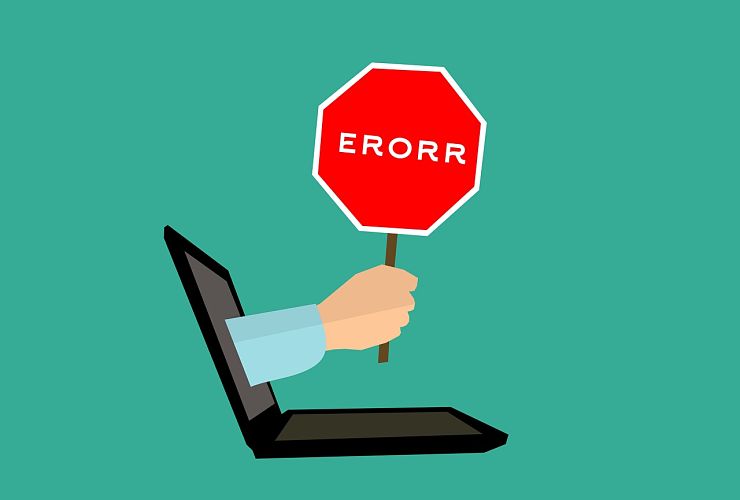Got an EDD tax form 1099G but no benefits?
At this moment, POTENTIALLY hundreds of thousands of California taxpayers are enjoying the ghastly experience of receiving a Form 1099G courtesy of the California EDD for unemployment benefits the taxpayer never received.
ABC News reported the EDD has admitted to paying as much as $31 billion to criminals. ($11.4 billion confirmed and as much as $20 billion more in suspected fraud.) If the EDD has “owned” these amounts, the true figure is likely worse.
Know further that because so many of the identity theft schemes involved foreign actors, the classic EDD recovery techniques are DOA. EDD isn’t getting the money back.
Not ever…Except maybe from you.
In classic bureaucratic fashion, you can rely upon California to send these “poisoned” forms 1099G “straight downhill” to the taxpayers whose identity was stolen and didn’t get these benefits. That someone is you.
How someone proves conclusively they didn’t receive money in the form of unemployment benefit checks is an interesting topic in itself.
What EDD suggests you do
Here’s the EDD’s sage advice from its website:
Victims of Identity Theft
If you receive mail or a Form 1099G from the EDD, but you did not file a claim for benefits and you think someone else filed a claim under your name, address, or Social Security number, file a fraud report:
- Benefit Fraud – Submit a fraud report.
- Form 1099G – Visit Ask EDD and select the Form 1099G category or call 1-866-401-2849, Monday through Friday, from 8 a.m. to 5 p.m., except on state holidays.
If we find you were a victim of fraud, we will remove the claim from your Social Security number and send you an updated 1099G, if needed. Review IRS tax guidance on benefit identity theft.
For more information about protecting yourself from identity theft, review the California Attorney General’s Identity Theft Information Sheets and Credit Scores and Reports.
There’s no insight on how EDD plans to determine if you were a victim of fraud. We should just trust them?
Fighting an EDD form 1099G
I recommend that grossly inaccurate Form 1099G(s) issued by the EDD be treated the exact same way that defective Form 1099-A and Form 1099-C forms are treated by a taxpayer who receives them.
This problem is not new. In my practice as much as 75% of all the Forms 1099-A and 1099-C that I see are defective in one or more serious ways.
Here are the Purdy Rules:
Rule 1. Never ignore a Form 1099
Never ignore a form 1099 of any kind. If you get a defective Form 1099G, carefully verify the error to make sure it is wrong.
Then attach the defective form 1099G to your return with a full and complete Plain Paper Attachment prepared by a qualified CPA or Enrolled Agent carefully describing exactly what it is wrong and why you don’t owe the tax.
File the return timely if at all possible or at least during the period authorized for extensions.
Once you have fully disclosed and reported the 1099G on your return and explained why you ARE NOT including the amount in income, the applicable statute of limitations for the taxing authority’s attempt to assess additional taxes for benefits you didn’t receive starts to run.
The EDD isn’t on your side but now, time will be.
Rule 2. Document your facts
Many taxpayers and more than a few CPA(s) and attorneys appear to believe any form 1099 issued to a taxpayer is writ from on high. They figure such forms are unchallengeable, immutable, all powerful, and require full and docile submission. Poppycock.
In the Great Recession, banks issued millions of Forms 1099-A and 1099-C that were inspired fiction at the very best and flagrantly willful violations of the IRS regulations at worst. Many taxpayers carefully attached the forms to their tax returns and using a well drafted Plain Paper Attachment, explained why the forms were wrong and the potential tax increase was short circuited right then and there.
But you have to produce every bit of evidence you can and attach it to the plain paper attachment included with your tax return.
One of the very best forms of evidence is one or more affidavits sworn to under penalty of perjury stating that you did not receive ANY of the funds reported on the Form 1099G. Copies of police reports are great if there were any relating to identity theft. Any correspondence with credit card or credit reporting agencies documenting identity theft etc. is also great.
DO NOT write a long winded sob story to IRS or the FTB. No one cares. They love to throw them away. I don’t care how long and detailed the stories are, they are not evidence. And, tax collectors don’t care.
Rule 3. Never guess what proof they want
Start with the EDD’s website for Form 1099G relief. Here’s the link to get started:
https://edd.ca.gov/about_edd/fraud.htm
Take every opportunity to make the EDD tell you EXACTLY what proof they need that you didn’t get what they didn’t send you.
You may think you’ve got great arguments but you’ll find yourself trying to guess how many angels can dance on the head of a pin, if you don’t force them to specify EXACTLY what they need to see. (I MEAN EXACTLY.) Otherwise they can tell you they’re thinking of a number between 1 and 97 trillion and invite you to guess which one it is in order to get relief.
See a good CPA, Enrolled Agent, or tax attorney and bring the bogus Form 1099G.
Don’t get mad, get busy.
Cathy here: I’d add to Bill’s list a letter to your state senator and assembly member about this snafu. The legislature needs to know, viscerally, what pain innocent Californians are experiencing. The legislature can mandate a fix here if they see the need. Check out Simmons and Purdy, too, where Bill has even more to say!






